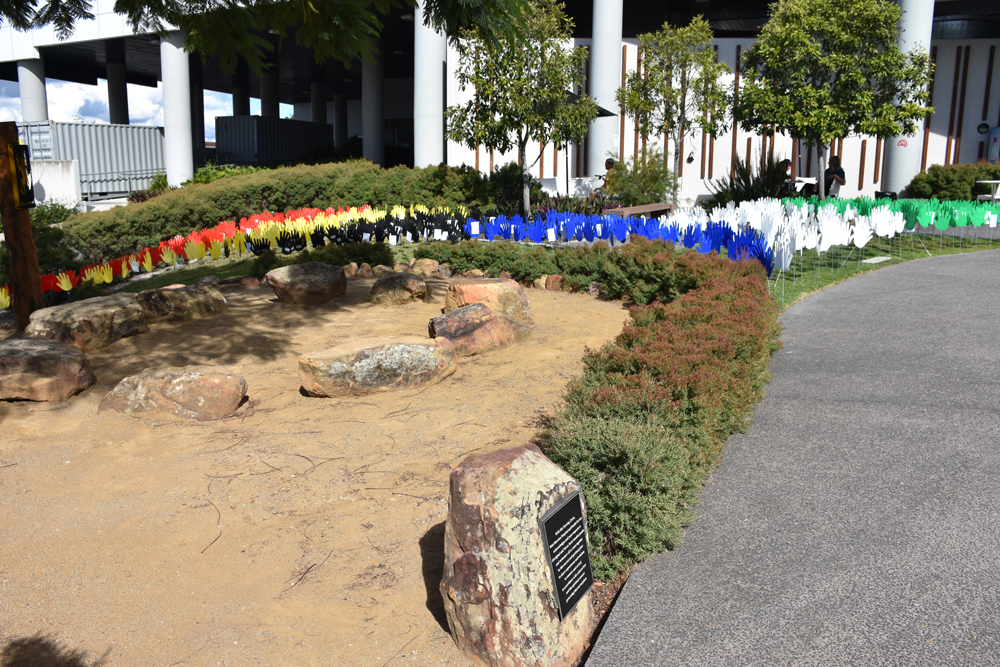A sea of hands flooded the Ipswich Hospital East Street entrance on Friday to mark National Sorry Day.
The day, nationally observed on 26 May, acknowledges the 1997 tabling of the Bringing Them Home report of the National Inquiry into the Separation of Aboriginal and Torres Strait Islander Children from their Families.
The report recognised the hardships, sacrifice and hurt endured by Australia’s First Peoples, particularly members of the Stolen Generation and their families, and was a significant step towards reconciliation in Australia.
West Moreton Health Chief Executive Kerrie Freeman said the sea of hands was a powerful, physical representation of the health service’s commitment to reconciliation and improving Indigenous health outcomes.
“Together, on National Sorry Day, staff and local community members acknowledge the pain and the hurt of the past, but also the steps we have taken together to reconcile and heal,” Dr Freeman said.
“The sea of 800 hands signed with personalised messages of support at the entrance of the hospital is a sign of the community’s support for reconciliation and building a brighter future.
“We cannot undo the past, no one can, but we can work together now to ensure the future is one of equal rights, opportunities and health outcomes.”
Dr Freeman said National Sorry Day reaffirmed West Moreton’s determination to improve the lives, and health, of Indigenous Australians.
“The life expectancy of Indigenous community members is seven to eight years less than our non-Indigenous community – this is completely unacceptable,” Dr Freeman said.
“In order to close that gap West Moreton Health will continue to forge strong connections and work closely with local Indigenous Elders, healthcare partners and the community.
“Several programs aimed at improving the health of the Indigenous community are in place across West Moreton Health. They include No Buts for Bub, Welcome Baby to Country, Deadly Steps Together as well as a number of school-based programs.
“It is only by caring better together that we can help improve the healthcare journey of local Aboriginal and Torres Strait Islander community members.”

